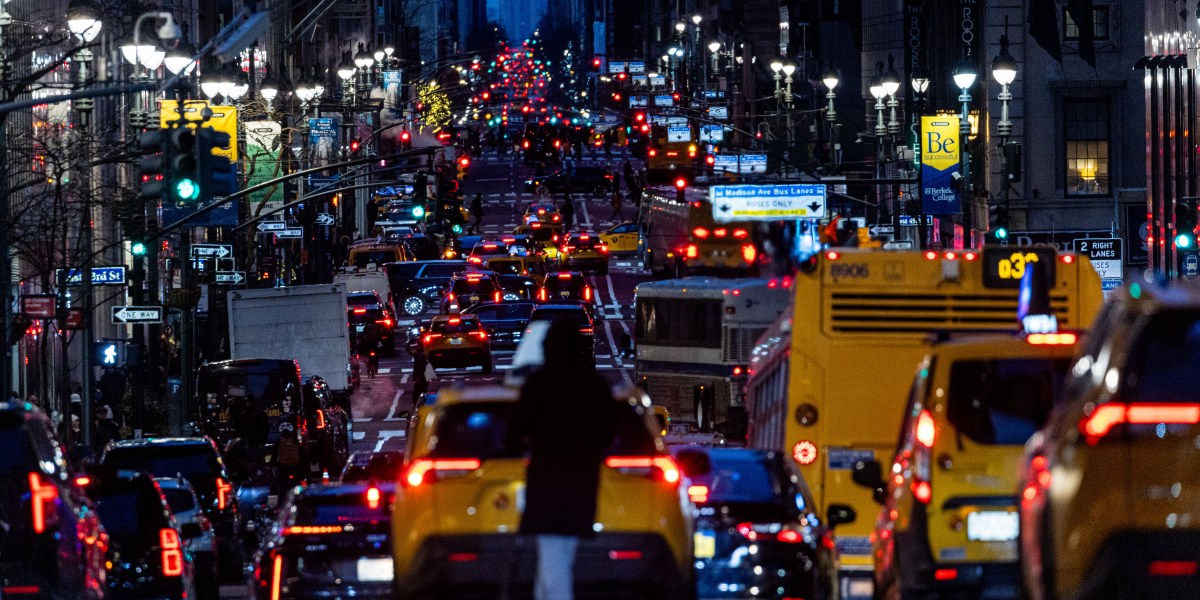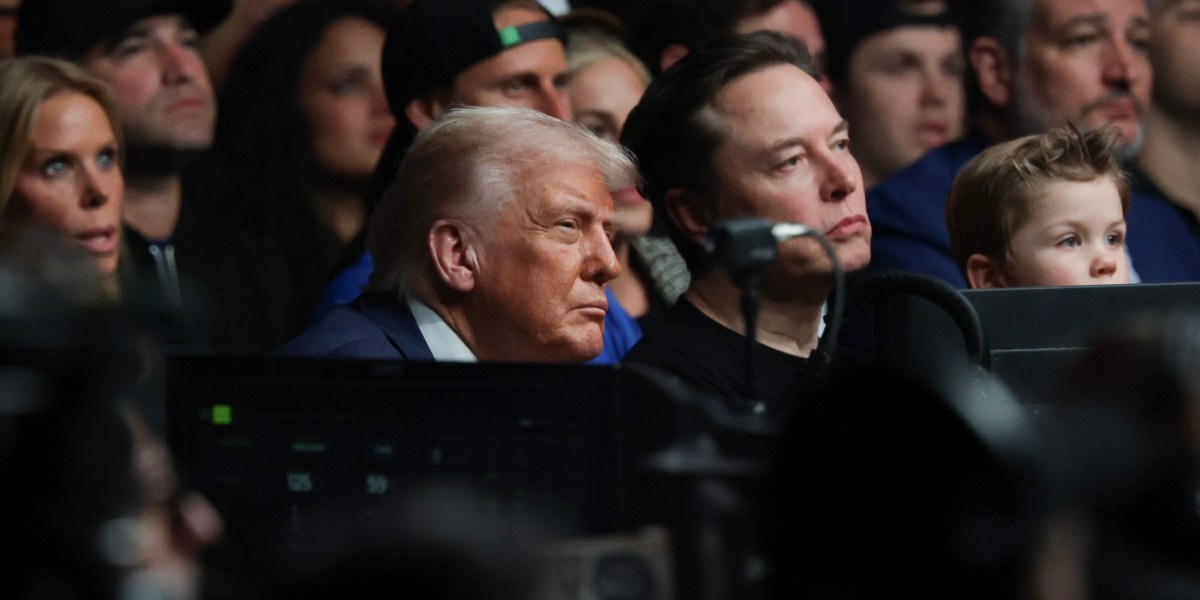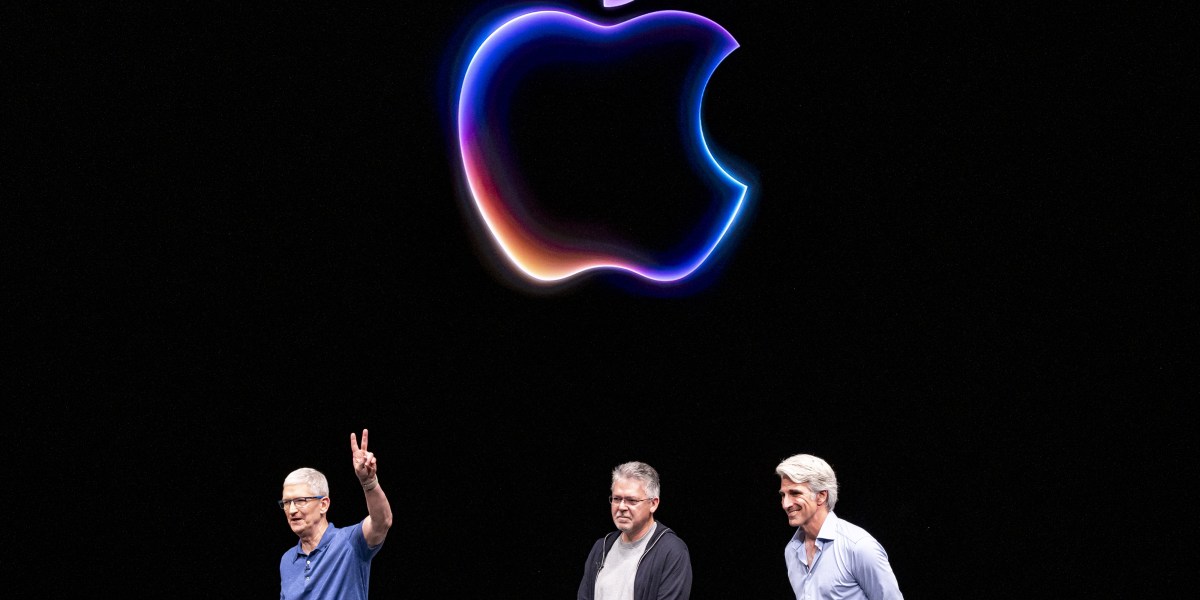Apple Inc. will remove its secret robotics unit from the command of its artificial intelligence chief, the latest shake-up in response to the company’s AI struggles.
Apple plans to relocate the robotics team from John Giannandrea’s AI organization to the hardware division later this month, according to people with knowledge of the move. That will place it under Senior Vice President John Ternus, who oversees hardware engineering, said the people, who asked not to be identified because the change isn’t public.
The pending shift will mark the second major project to be removed from Giannandrea in the past month: The company stripped the flailing Siri voice assistant from his purview in March. The changes are part of a broader effort to catch up in artificial intelligence, a field where Apple has fallen behind tech peers such as Alphabet Inc.’s Google and OpenAI.
Giannandrea, a former Google executive who serves as senior vice president of machine learning and artificial intelligence strategy, continues to run most of Apple’s AI efforts. And the change will give his group more time to focus on underlying artificial intelligence technology, the people said.
A representative for Cupertino, California-based Apple declined to comment.
The Siri engineering unit was taken over by Mike Rockwell, who previously ran hardware and software development for the Vision Pro headset. As part of that management shift, Rockwell kept oversight of the visionOS operating system. He is replacing much of the management of Siri with top deputies from the Vision Pro team, Bloomberg News reported this week.
The robotics team, in contrast, is more behind the scenes at Apple. It’s working on ways to use AI technologies to power devices — potentially laying the groundwork for a new product category. The group is led by veteran executive Kevin Lynch, who has managed Apple Watch software and the company’s now-defunct self-driving car initiative.
As part of the robotics project, Apple plans to release a tabletop robot that uses an artificial limb to move around an iPad-like display. For further in the future, the group has discussed building mobile machines, including a roaming robot similar to the Amazon Astro. The products are designed to be telepresence devices, meaning they would let users videoconference with others.
Robots are quickly emerging as one of the most exciting fields in Silicon Valley, with Tesla Inc., Meta Platforms Inc. and other giants investing billions of dollars in the category. After losing ground in generative AI, canceling its self-driving car plans and arriving late to the smart home market, Apple can ill-afford to miss out on yet another major AI-driven category.
Top Apple executives have faith in Ternus’ ability to oversee the project. He’s one of Chief Executive Officer Tim Cook’s most trusted lieutenants and is already in charge of hardware engineering for the iPhone, iPad, Mac, Vision Pro and most other products. Many employees believe that Ternus could be Apple’s next CEO — a future shift that could occur at a time when robots become more mainstream.
Ternus already has jurisdiction over a hardware engineering team run by executives Matt Costello and Brian Lynch that has been working on robotics and smart home technologies. The latest shake-up also suggests that Apple is ramping up work on the effort and wants both groups more closely aligned under a single boss.
The relocation of Lynch’s unit is also notable because it gives Ternus control over key AI operating system and algorithms teams, groups not typically managed by the hardware engineering department. Ternus briefly oversaw the Vision Pro software unit — until Rockwell moved with that team to the software engineering organization. That coincided with the Siri management shift last month.
For Giannandrea, the switch will mark yet another demotion of sorts in the wake of major delays to key Siri features and a tepid response to the Apple Intelligence platform. He has now lost hundreds of engineers just this year — to Ternus, Rockwell and software chief Craig Federighi — after Cook lost faith in his ability to execute on new product development.
The shifts do free up Giannandrea’s group to focus on development of underlying models that will power future Apple products — including upgrades to Apple Intelligence and Siri.
The AI and machine learning group, mocked by some employees as “AI/MLess,” has been reeling for months after multiple delays to promising Siri features. People within Apple also have complained about a lax attitude that has slowed down engineering and the development of new initiatives. In an all-hands meeting last month, Apple’s former head of Siri under Giannandrea — Robby Walker — called the situation “ugly” and “embarrassing.”
Giannandrea hasn’t given his team any indication that he is planning to leave soon, but the continued shift of responsibilities has raised the prospect that the company may be preparing for a world without the executive at the helm of its AI efforts. Eight years after combining Apple’s AI teams into a single group with the hire of Giannandrea, a breakup of the AI and ML team is looking more likely, the people said.
This story was originally featured on Fortune.com
Source link


 Politics8 years ago
Politics8 years ago
 Entertainment8 years ago
Entertainment8 years ago
 Entertainment8 years ago
Entertainment8 years ago
 Entertainment8 years ago
Entertainment8 years ago
 Tech8 years ago
Tech8 years ago
 Tech8 years ago
Tech8 years ago
 Tech8 years ago
Tech8 years ago
 Tech8 years ago
Tech8 years ago






